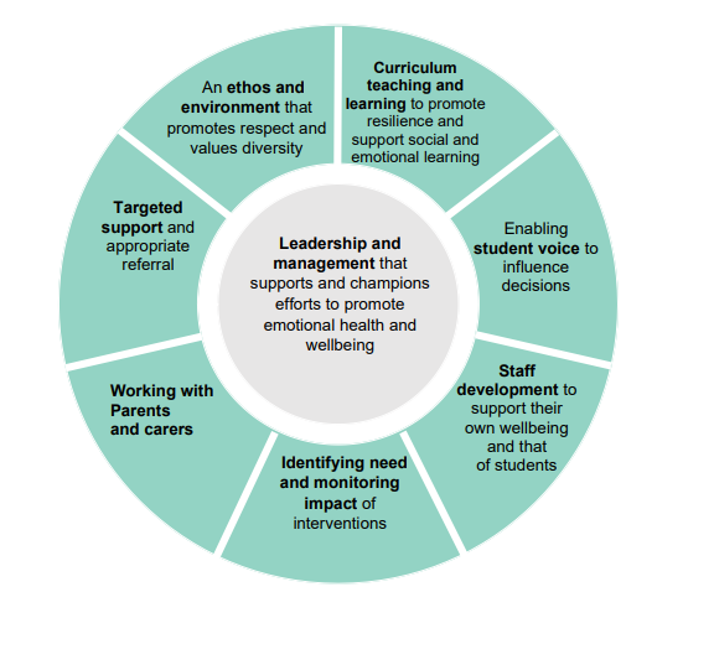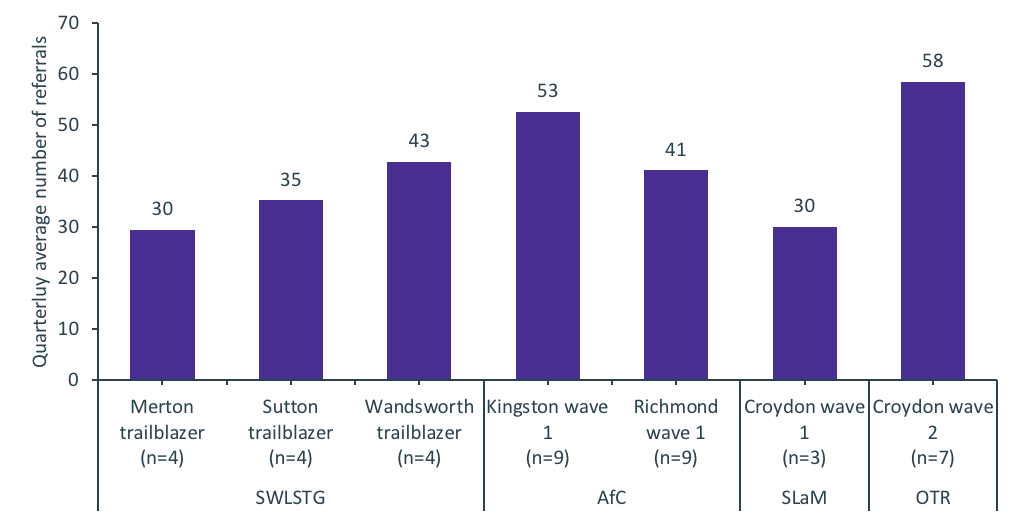Report summary: Evaluation of the South West London Children and Young People’s Emotional Wellbeing in Schools Programme
April 21, 2023
Background and context
The Health Innovation Network (HIN) Insights Team recently completed an independent evaluation of the Children and Young People Emotional Wellbeing Programme for South West London Integrated Care Board (ICB). This Programme aims to improve emotional wellbeing and mental health in children and young people. The creation of school clusters, each with a Mental Health Support Team delivered by a mental health organisation, is a key feature of the Programme. The Mental Health Support Teams deliver targeted evidence-based one-to-one and group interventions to children and young people in schools/colleges, and to their parents and school/college staff. They also support schools and colleges in developing a Whole School Approach to emotional wellbeing.

Key statistics
- 44% of all SWL state schools and all Further Education (FE) Colleges can access support from one of 16 Mental Health Support Teams (October 2022).
- Mental Health Support Teams had over 500 contacts with children and young people, parents/carers and staff in the 2021-22 school year.
- 5,739 children and young people in SWL registered on the Kooth online platform providing access to emotional wellbeing support (between September 2020 and March 2022)
- 79% (162) parents and carers were positive about the ethos and environment around emotional wellbeing in their child’s school
Evaluation approach
The HIN’s mixed methods evaluation involved analysis of quantitative data and in-depth qualitative work with four case studies. 196 stakeholders took part in interviews and/or focus groups, and 226 completed surveys. Feedback was captured from across the system, including cluster leads, teachers, mental health service providers, children and young people and parents and carers. School staff who were not involved in the Programme were also interviewed to provide a comparison.

[1] Source: Public Health England working with the Department for Education (2021) Promoting children and young people’s mental health and wellbeing. A whole school or college approach. HM Government. https://assets.publishing.service.gov.uk/government/uploads/system/uploads/attachment_data/file/1020249/Promoting_children_and_young_people_s_mental_health_and_wellbeing.pdf
Programme impact
The evaluation provides considerable qualitative evidence of positive change associated with the Programme. There is a general consensus that it has achieved improvements in the provision of support around emotional wellbeing in schools – for children and young people, parents/carers, and staff. Improvements were identified across the eight Whole School Approach domains. The increased capacity the Programme provided for additional support to cope with increased emotional wellbeing needs as a consequence of the COVID-19 pandemic, was seen as a specific benefit. Stakeholders from across the system were positive about the principle of the Programme and felt it should continue into the future, though most also suggested adaptations.
Evidence from quantitative data demonstrates a good deal of new activity aimed at improving emotional wellbeing in schools, most significantly the delivery of one to one and group interventions by the Mental Health Support Teams and access to self-help resources and direct support via the Kooth online platform. However, the impact of the increased activity around emotional wellbeing is challenging to measure quantitatively due to a number of factors, not least Covid-19.

Features of the Programme associated with success

In the first quarter of 2020/2021, 600 children and young people accessed mental health support through the Kooth online platform.
Areas for improvement
The evaluation identified areas for improvement that the Programme Steering Group have committed to review, including:
- Programme level processes to systematically monitor success
- Sharing information about the Programme across the school community, with children and young people, parents, and staff, to broaden understanding of the Programme and extend engagement
- Flexibility in the Mental Health Support Team staffing model to address problems with recruitment and retention
- Increased resources for central Programme management and support
- Sharing learning around addressing challenges faced by schools in supporting pupils experiencing mental health difficulties beyond the remit of the Mental Health Support Team and actively engage with schools in co-producing an effective solution.
